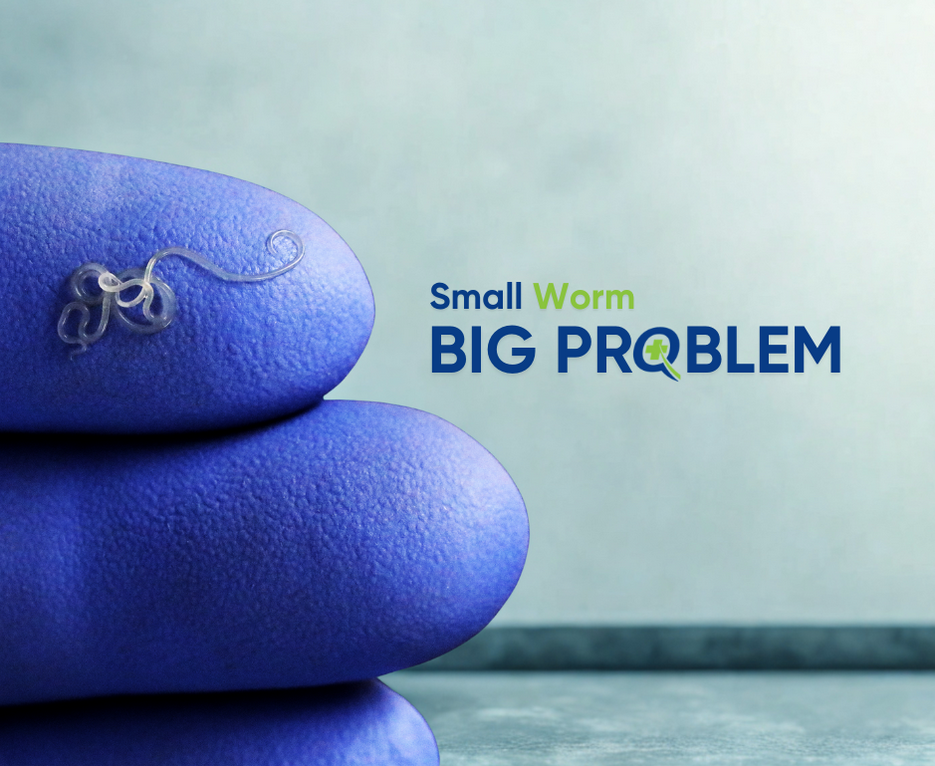Are You at Risk for Parasitic Worm Infections?
In this article, we’ll cover all the essential information you need to understand the risks, symptoms, and prevention of parasitic worm infections. You’ll learn who is most vulnerable in 2025, how these parasites are commonly transmitted, and the warning signs to look out for. We’ll also explore how Biltricide (Praziquantel) works as an effective treatment option and what steps you can take to protect yourself and your family. Whether you’ve recently traveled, are experiencing unexplained symptoms, or simply want to stay informed, this guide will help you take control of your health.
What Are Parasitic Worm Infections?
Helminths are large, multicellular parasites that can live inside the human body, particularly in the intestines, blood vessels, or organs. Some of the most well-known types include:
- Schistosomes (cause schistosomiasis)
- Liver flukes
- Tapeworms
- Hookworms
These infections are often contracted through contaminated water, undercooked freshwater fish, or poor sanitation.
For a clinical overview, visit CDC’s page on Parasites.
Who is Most at Risk in 2025?
High-Risk Groups Include:
- Travelers to tropical regions in Africa, Asia, and Latin America
- Immigrants or refugees from endemic regions
- People who eat raw or undercooked freshwater fish
- Individuals who swim or bathe in untreated freshwater lakes or rivers
- People working in healthcare, agriculture, or sanitation in global settings
Increased global mobility and climate shifts in 2025 make these infections more relevant than ever, even in the U.S.
Get Copay Assistance
Common Symptoms to Watch For
Symptoms vary depending on the type of worm, but common signs include:
- Fatigue
- Abdominal pain or cramping
- Diarrhea or constipation
- Rash, especially after freshwater exposure
- Weight loss
- Blood in stool or urine
If untreated, long-term complications may include liver damage, kidney issues, or neurological symptoms.
For more information, see World Health Organization: Soil-transmitted helminth infections.
Can You Get Parasitic Infections in the U.S.?
Yes, but Here’s How It Happens
Though rare, parasitic worm infections do occur in the U.S., usually due to:
- International travel
- Imported seafood or produce
- Contact with infected individuals or surfaces
Climate and Migration Factors
As climate change expands the range of mosquitoes and freshwater snails, certain parasites may become more common in regions previously unaffected.
What U.S. States Should Be Cautious?
While human infections are extremely rare in the U.S., animal-related flukes (e.g., Fascioloides magna and Heterobilharzia americana) have been documented in states like Texas, Florida, California, Utah, New York, Minnesota, and parts of the Gulf Coast. These typically affect pets or livestock but signal a potential risk to human health as ecosystems change.
Learn more from this NYPost article.
How to Protect Yourself
Safe Practices While Traveling
- Avoid swimming in freshwater lakes, ponds, and rivers in endemic countries
- Always drink bottled or filtered water
- Wash fruits and vegetables thoroughly
- Practice good hygiene, especially after bathroom use
At Home Prevention
- Cook all fish and meat thoroughly
- Be cautious with imported foods
- Educate your household about hygiene and travel safety
Need Dificid Copay Assistance?
Diagnosing and Treating Parasitic Worm Infections
Diagnosis typically involves:
- Blood tests
- Stool samples
- Imaging studies (for advanced cases)
Treatment depends on the type of parasite. Most infections are treated with prescription antiparasitic medications. One common medication is Praziquantel, often prescribed for infections caused by flukes and tapeworms.
If you need support with your prescription, QuickRx offers Praziquantel copay assistance for eligible patients.
Early detection is key to preventing complications.
Refer to the Mayo Clinic’s guide on parasitic infections for more detailed information.
Final Thoughts: Awareness Saves Lives
Parasitic worm infections are preventable and treatable, but many people don’t know they’re at risk until it’s too late. Being informed, especially if you travel internationally or eat global cuisine, is a powerful first step toward protecting yourself and your loved ones.
QuickRx Can Help
Have questions about parasitic infections or recent travel exposure? QuickRx Specialty Pharmacy can help you navigate treatment, testing, and access to affordable medications like Praziquantel.
Visit our copay assist page or speak with a pharmacist today to learn more about Praziquantel copay assistance.
Disclaimer: This blog is intended for educational purposes only and does not substitute for professional medical advice. Always consult your healthcare provider regarding any symptoms or treatment options.


